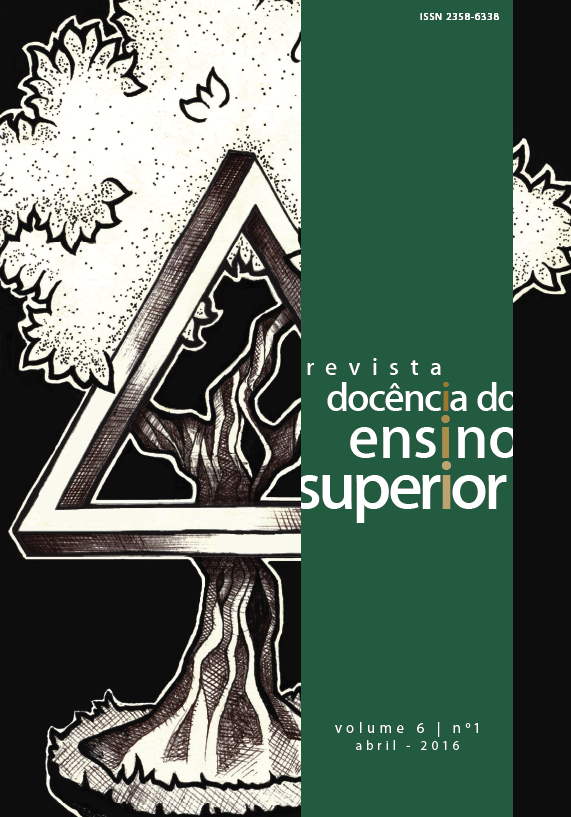O portfólio como instrumento didático
o processo de construção/constituição do “ser professor”
DOI:
https://doi.org/10.35699/2237-5864.2016.2126Palavras-chave:
Portfólio, Fazer docente, AlunoResumo
Este relato descreve experiências de aprendizagens vividas na disciplina “Didática Aplicada à Saúde”, do mestrado acadêmico em Saúde Coletiva, a partir da construção do portfólio. A estratégia de elaboração do portfólio envolve trocas de experiências relevantes para construção/constituição do ser professor. O eixo do relato reside na descrição de momentos significativos relacionados às práticas pedagógicas no cotidiano da sala de aula. No primeiro momento, relatam-se as experiências vivenciadas na disciplina; no segundo, apresentam-se as vicissitudes do mapa conceitual; no terceiro, detalham-se as peculiaridades do planejamento e do desenvolvimento de um seminário e, em seguida, as experiências com a estratégia do painel integrado. Após isso, são descritas as particularidades da elaboração e da execução da aula e o papel dos textos para aprendizagem. A construção do portfólio permitiu ao aluno em formação entrar em contato com ferramentas que estimulam a investigação, a capacidade de síntese, a autorreflexão e a autoavaliação, favorecendo a aprendizagem significativa.
Downloads
Downloads
Publicado
Edição
Seção
Licença
Autores que publicam nesta revista mantêm os direitos autorais e concedem à revista o direito de primeira publicação, com o trabalho simultaneamente licenciado sob a Licença Creative Commons Attribution que permite o compartilhamento do trabalho com reconhecimento da autoria e publicação inicial nesta revista.
Autores têm autorização para assumir contratos adicionais separadamente, para distribuição não-exclusiva da versão do trabalho publicada nesta revista (ex.: publicar em repositório institucional ou como capítulo de livro), com reconhecimento de autoria e publicação inicial nesta revista.
Política de acesso aberto:
A Revista Docência do Ensino Superior é um periódico de Acesso Aberto, o que significa que todo o conteúdo está disponível gratuitamente, sem custo para o usuário ou sua instituição. Os usuários podem ler, baixar, copiar, distribuir, imprimir, pesquisar ou vincular os textos completos dos artigos, ou usá-los para qualquer outra finalidade legal, sem solicitar permissão prévia do editor ou do autor, desde que respeitem a licença de uso do Creative Commons utilizada pelo periódico. Esta definição de acesso aberto está de acordo com a Iniciativa de Acesso Aberto de Budapeste (BOAI).



























